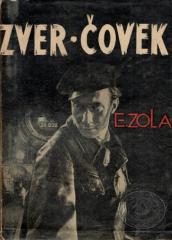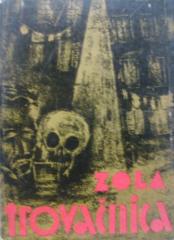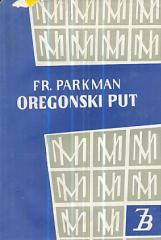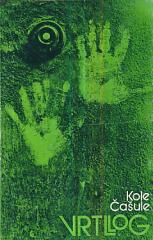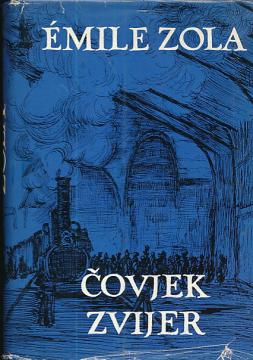
Čovjek zvijer
Der Roman untersucht die zerstörerischen Kräfte von Erbe, Leidenschaft und Gewalt in der modernen Industriegesellschaft. Die Handlung spielt sich größtenteils auf der Eisenbahn ab, einem Symbol für Geschwindigkeit, Schicksal und unausweichlichen Untergang
Die Hauptfigur, Jacques Lantier, ein Eisenbahningenieur, trägt eine erbliche Neigung zur Gewalt in sich. Er wird von einem unkontrollierbaren Drang gequält, Frauen zu töten, die ihn sexuell anziehen. Obwohl er verzweifelt versucht, seine Impulse zu kontrollieren, zerreißt ihn der Kampf mit sich selbst immer mehr.
Im Mittelpunkt der Handlung steht ein brutales Verbrechen: Roubaud, ein hochrangiger Eisenbahnbeamter, ermordet zusammen mit seiner Frau Séverine den reichen und korrupten Präsidenten Grandmorin, ihren Wohltäter, nachdem er von Séverines Affäre mit ihm erfahren hat. Jacques, ein zufälliger Zeuge, mischt sich in ihr Leben ein und entwickelt eine Beziehung zu Séverine, die ihn ins Verderben führt.
Versuche um Liebe und Erlösung enden tragisch – Séverine überredet Jacques, ihren Mann zu töten, doch in einem Moment der Schwäche tötet Jacques Séverine selbst, überwältigt von seinen inneren Dämonen. Der Roman gipfelt in einer Szene, in der außer Kontrolle geratene Züge, die Soldaten in den Krieg transportieren, dem Tod entgegenrasen – ein eindringliches Bild menschlicher Ohnmacht angesichts von Instinkten und zerstörerischen Kräften.
In „The Beast Man“ untersucht Zola Themen wie erbliches Übel, sexuelle Besessenheit und die Mechanismen des gesellschaftlichen Zusammenbruchs und verwendet einen naturalistischen Stil, um die dunkle Seite der menschlichen Natur darzustellen.
Angeboten wird ein Exemplar
- Spuren von Patina
- Leichte Beschädigung der Abdeckung
- Eine Nachricht persönlicher Natur
- Die Abdeckung fehlt
